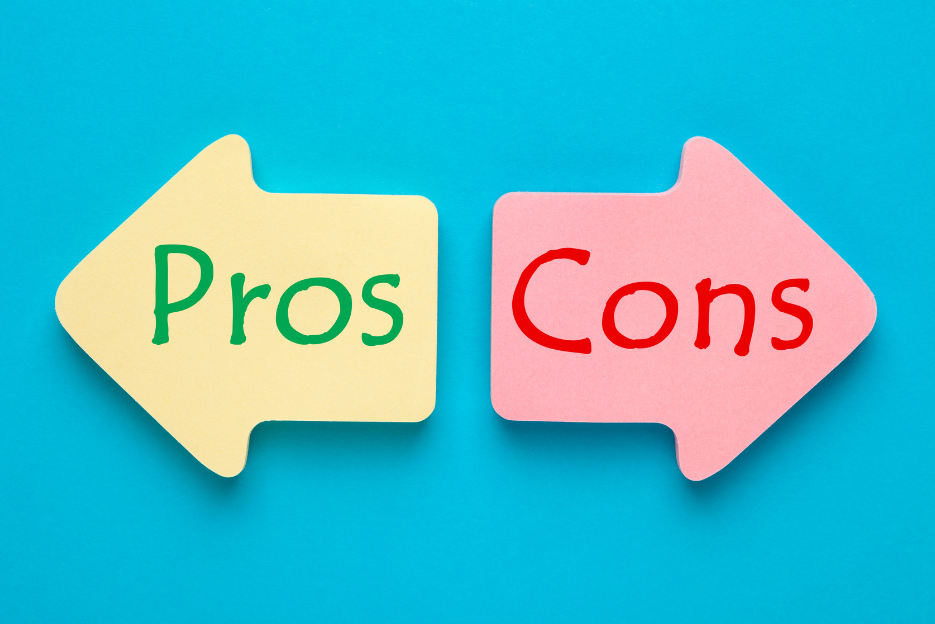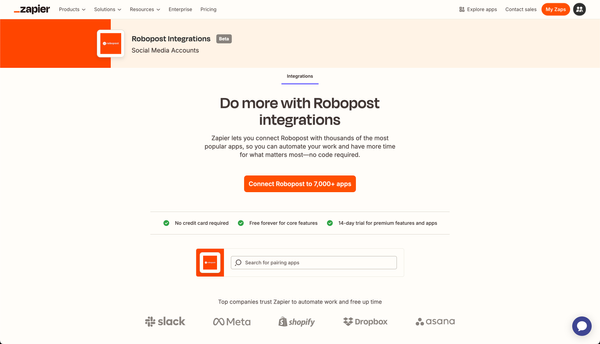The Ethics of Automation in Social Media Marketing
Explore the ethical challenges of AI in social media marketing, from data privacy to influencer authenticity.

The intertwining of artificial intelligence (AI) with social media marketing presents a complex landscape of ethical considerations. As AI continues to evolve and integrate into various aspects of marketing, from data analysis to content creation, it becomes imperative to scrutinize the moral implications of these technologies. This article delves into the ethics of automation in social media marketing, exploring the balance between efficiency and authenticity, the role of human oversight, and the need for transparency and accountability in AI deployments.
Key Takeaways
- Ethical AI marketing requires careful consideration of data consent, privacy, and the establishment of accountability and transparency measures.
- Authenticity and transparency are crucial in influencer marketing, with clear disclosure of AI involvement and brand partnerships to maintain consumer trust.
- Human oversight is essential in balancing automation with authenticity, ensuring that AI strategies align with brand values and ethical messaging.
- The use of AI in content creation offers efficiency but must be weighed against the need for personalization and adherence to ethical marketing practices.
Understanding the Ethics of AI Marketing

The Dilemma of Data Consent and Privacy
The use of personal data in the world of social media marketing is a double-edged sword. On one hand, it enables marketers to tailor experiences and content to individual preferences, enhancing user engagement. On the other hand, it raises significant ethical concerns regarding data privacy and the extent of informed consent.
- Data Privacy: A major ethical concern for marketers, emphasizing the need for adherence to privacy standards.
- Informed Consent: Questions arise about the true consent given by users for companies to access their personal information.
- Sensitive Information: The data often includes sensitive details such as financial or medical history, which requires stringent protection.
Transparency in how data is collected, used, and protected is not just a legal obligation but a cornerstone of ethical marketing. Companies must establish clear policies and communicate them effectively to their users. The role of oversight bodies and ethical boards is crucial in maintaining this balance and safeguarding consumer trust.
Accountability and Transparency in AI Deployments
In the world of using AI, especially in social media marketing, it's essential to be accountable and transparent. To handle AI ethically in businesses, it's crucial to have clear records of how AI systems make decisions. These records help in checking and evaluating the systems to ensure they're fair, accurate, and have a positive impact on users.
It's important for businesses to involve employees, customers, and communities in discussions about:
- Evaluating ethical risks during AI development
- Continuous stakeholder communication
- Keeping stakeholders updated regularly to shape ethical AI practices and policies
Finally, incorporating ethics into AI innovation involves creating systems that match company values and handling risks well. Including tools for understanding models, detecting bias, and monitoring performance in AI development ensures ongoing supervision and adherence to ethical guidelines.
Setting Ethical Boundaries for AI in Social Media
As AI becomes more common in social media marketing, it's crucial to set ethical boundaries to keep trust and honesty intact. Marketers need to check that their AI systems are fair and unbiased by regularly reviewing and updating algorithms to remove biases. Using AI to gather data ethically requires clear rules on consent and data use.
For ethical AI in social media, a framework includes:
- Consent: Getting clear permission from users for their data.
- Accountability: Making AI systems responsible for the data they use and content they create.
- Transparency: Clearly marking AI-generated content as different from human-made content.
- Integrity: Respecting creative rights, professional integrity, and human rights.
While there's no central authority enforcing these rules, tech companies should create their own AI ethics guidelines or a code of conduct to handle ethical AI properly.
Ethical Influencer Marketing in the Age of AI

Maintaining Authenticity with AI Influencers
In social media marketing, AI influencers are becoming more common. They can create lots of content quickly, but this raises questions about how genuine their content is. Using influencer-generated content (IGC) helps keep a human touch on your social media, which is important for connecting with audiences authentically.
Transparency is key when integrating AI influencers into marketing strategies. Audiences should be able to tell what content is made by humans and what is made by AI. It is recommend clearly labeling AI-generated content to maintain trust between brands and audiences.
Creating guidelines and ethical standards for AI influencers isn't just a suggestion; it's necessary to build trust and ethical engagement. As AI gets more powerful, it's important to make sure audiences always know what kind of content they're seeing.
The Role of Human Oversight in Influencer Marketing
In influencer marketing, having human oversight is crucial for ethical standards. With AI becoming more involved, it's important to keep the collaboration between human marketers and AI influencers clear and genuine. This helps create a content strategy that's adaptable, personalized, and maintains the brand's identity while connecting with the audience.
Transparency is key, especially with AI influencers. Consumers should easily know if content is from humans or AI. Clear labeling of AI-generated content is recommended to build trust. Having guidelines and ethical standards isn't just about following rules; it's about protecting the brand's integrity and audience trust.
- Make sure promotional content is honest and transparent.
- Clearly show any paid relationships to keep credibility.
- Support clear labeling of AI-made content.
- Create ethical standards and guidelines for using AI.
Balancing Automation with Authenticity in Marketing
The Importance of Human Touch in Automated Campaigns
Automation in social media marketing brings efficiency and consistency, but it's the human touch that really connects with audiences. Humans add empathy, creativity, and a deep understanding of consumer emotions that AI can't match. Combining human intuition with automated precision is vital for creating campaigns that not only reach but also truly engage consumers.
- Empathy: Connecting with consumer emotions.
- Creativity: Crafting unique stories.
- Nuance: Understanding subtle consumer behaviors.
Marketers should use automation to enhance, not replace, human aspects of marketing. Keeping the human touch in automated campaigns is crucial for building lasting connections with audiences as we navigate the digital world.
Ensuring Brand Alignment and Ethical Messaging
In social media marketing, it's crucial to align brands with ethical messaging. AI tools need to reflect the brand's values and ethics to avoid sharing misleading content or sensitive information accidentally.
- Brands must establish clear guidelines for AI-generated content.
- Maintain a consistent voice that matches the brand's identity.
- Integrate ethical considerations into AI decision-making.
- Balance efficiency with consumer trust by monitoring and refining AI outputs to align with the brand's messaging and ethics.
The Pros and Cons of Leveraging AI in Content Creation

Efficiency vs. Personalization: Striking the Right Balance
Marketers often turn to AI to manage and analyze large datasets, enabling them to reach wider audiences with personalization at scale. However, the challenge lies in maintaining a balance where automation does not overshadow the need for a human touch, which is crucial for creating genuine connections with consumers.
Here are some key considerations for marketers aiming to strike the right balance:
- Prioritize quality engagement over reaching many.
- Use AI to support human creativity, not replace it.
- Focus on long-term brand loyalty, not just immediate gains.
Ethical Implications of Automated Content Generation
AI in content creation has sparked concerns about ethics, especially regarding plagiarism and intellectual property. Generative AI trained on copyrighted material can produce content that resembles copyrighted works without permission.
Using AI in content creation has challenges too. Generic content can weaken a brand's identity and seem impersonal, hurting consumer trust. Balancing AI with human input is vital to keep content authentic and in line with the brand's voice.
Future Trends in AI-Driven Marketing Strategies
AI is changing marketing a lot, leading to big changes in how marketing works. Using AI in content strategies will make marketing more personalized and creative. Business leaders expect to invest more in AI, especially for analyzing social media data.
The trajectory of AI influencers suggests a future where digital and human experiences increasingly converge. We can expect enhanced interactivity and a push towards more dynamic marketing strategies that respond in real-time to audience engagement. This shift will necessitate a reevaluation of traditional approaches and a move towards more agile, data-driven tactics.
- Personalization: AI's ability to tailor content to individual preferences.
- Predictive Analytics: Using AI to forecast trends and consumer behavior.
- Creative Experimentation: AI enabling more experimental and diverse content.
- Real-time Engagement: Instantaneous responses and interactions powered by AI.
Combining your AI-driven marketing strategies with social media management tools like Robopost will boost the efficiency.
Conclusion
In the world of social media marketing, the ethical deployment of automation and AI technologies is not just a matter of compliance, but of maintaining the trust and integrity that are the bedrock of consumer relationships. As we have explored, the intersection of ethics, content, and AI presents both opportunities and challenges. While AI can enhance personalization and efficiency, it is imperative that businesses balance automation with authenticity, uphold transparency, especially with AI influencers, and ensure human oversight to align with brand values and ethical standards. The future of AI in social media marketing is promising, but it must be navigated with a conscientious approach that respects user privacy, consent, and the human touch that resonates with audiences. As we embrace these technologies, let us commit to ethical practices that foster trust and credibility, ensuring that the digital marketing landscape remains both innovative and principled.
